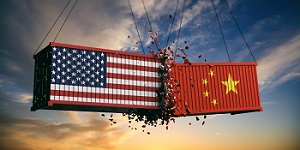Overseas Production Could Actually Be Costing You More by Danny Brown
 A friend of ours had some car trouble and purchased a part online, using overseas production, for a quarter of the price. Thinking he had scored a deal, he had his mechanic install it only to have it fail a week later. After several hours spent navigating the company’s customer service portal, he managed to convince them to send another part in exchange for the broken one. It took four weeks to arrive since it was being shipped from overseas.
A friend of ours had some car trouble and purchased a part online, using overseas production, for a quarter of the price. Thinking he had scored a deal, he had his mechanic install it only to have it fail a week later. After several hours spent navigating the company’s customer service portal, he managed to convince them to send another part in exchange for the broken one. It took four weeks to arrive since it was being shipped from overseas.
Three days after the new part was installed (and more car rental and auto shop fees) it failed again; so our friend went back at it — waiting on the phone, haggling with customer service, mumbling curse words under his breath, until another part arrived…a month later. When all was said and done that “less expensive” part ended up costing our friend nearly three times more and he realized that reshoring manufacturing is a consumer issue too, not just a topic for CEOs debating the value of overseas production logistics.
CustomFab USA has seen similar attempts by customers wanting to keep costs down by outsourcing overseas production. And while it might initially appear the final price tag is lower than manufacturing domestically, there are important variables to consider when comparing the costs. Hence, the reshoring of manufacturing is not only a mindset required for manufacturers, but also for consumers looking for the benefits of American made products.
PRODUCTION
Having a domestic manufacturing plant that adheres to state and federal guidelines and with which you can easily communicate, saves company time and headache. Shorter lead times, better inventory control, and increased speed-to-market, help to keep the total cost of ownership low. Addressing quality problems is also simplified.
CONSUMER
A study by The Made In America Movement, found that more than 83% of shoppers pay attention to whether a product is labeled “Made in the USA”, with 76% of those shoppers saying they’d be more likely to purchase something with that designation.
Reasons for such patriotic enthusiasm for avoiding overseas production range from a desire to stimulate the economy to the perception that the unenforced labor laws and cheap production standards in other countries equate to a lesser quality product.
Recently, large retailers such as Walmart are on board, as evidenced by its 2016 American renewal pledge to purchase $250 billion domestically made products by 2023. Put simply, making a product in America is good economic policy.
PEACE OF MIND
One of the biggest considerations when making products in the USA vs. overseas production is peace of mind. CustomFab USA and other US contract manufacturing companies must abide by strict intellectual property-rights laws that ensure your product won’t be copied and mass produced.
While the allure of a seemingly lower price point might initially overshadow the benefits of manufacturing a product in America, a look at the bigger picture and the risks, lost opportunities, and costs, shed some light on the truth: Made in America makes dollars and sense.
Danny Brown is the Marketing Content Director at CustomFab USA, a comprehensive contract sewing solution to companies looking for a domestic production partner.



